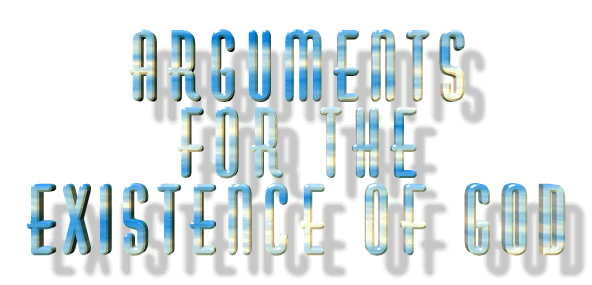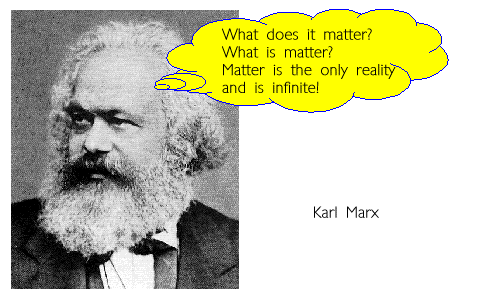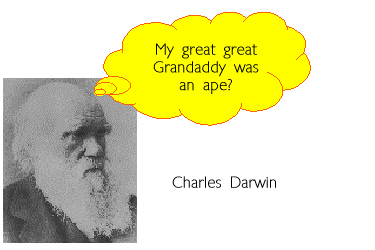


 | Draw an illustration or diagram which shows what St. Thomas Aquinas means when he says that there must have been a first cause. Do you think there was a first cause? Give clear reasons for your opinion. |

 | Divide your page into four equal parts. In each part, draw two items - one piece of technology and something similar from the natural world, to show how they compare e.g. a camera and an eye. 'The world is such a beautiful and orderly place, there must be a designer.' What do you think? Give your opinion and reasons. |

 | Some people accept BOTH the arguments from design and the theory of evolution. Explain how this is possible. 'Human beings are a species which has naturally evolved as the highest form of animal life'. Do you agree or disagree with this statement? Give clear reasons for your opinion. |

|
Two people (A and B) come upon a garden which appears to have been neglected. However, some plants seem to be very healthy and in places, the garden is extremely beautiful in spite of the weeds. A says: 'It must be that a gardener has been coming here' B replies: 'No, I don't think so. Just look at the weeds' They ask several people who live beside the garden, but no one has ever seen any one working there. A says: 'He must have worked while people slept.' B responds: 'No, someone would have heard him. Anyway, anyone who cared about plants would have kept the weeds down.' They examine the garden ever so carefully, and sometimes they find new things that suggest that a gardener comes and sometimes they find new things that suggest there is no gardener or even a malicious person may have been at work. They also study what happens to the gardens that are left without attention. However, they still disagree about whether there is a gardener. A says: 'But look at the way these plants are arranged. There is a definite feeling for beauty here. There must be a gardener.' B says: 'I doubt it, but we can make sure.' So they set up a barbed wire fence. They electrify it and they patrol it with bloodhounds. But no shrieks ever suggest that some intruder has received an electric shock. No movements of the wire ever betray an invisible climber. The bloodhounds never bark as though someone was there. And the garden continues to blossom. A declares: 'There must be a gardener, but he is invisible, intangible, insensitive to electric shocks, a gardener who has no scent, makes no sound, a gardener who comes secretly to tend the garden he loves.' B responds: 'Just how does what you call invisible, intangible, eternally elusive gardener differ from an imaginary gardener or no gardener at all.' So, after all their searching, A still says, 'I believe that a gardener comes,' while B says 'I don't.' But their beliefs make no difference to what they expect to find in the garden. What, then, is the difference between them? The difference lies in how they feel towards the garden rather than in the garden itself |
 | Summarise the parable of the gardener in not more 100 words. How does it help to explain different beliefs about the existence of God? Why is A still convinced that there is a gardener after all their searching? Show how this view is helpful in understanding how a person can believe in a God that cannot be seen or touched. In pairs summarise all of the arguments for the existence of God in not more that 50 words each. Note down the objections to each of the arguments, using examples where possible. Which argument do you think a believer would find the most convincing? Give reasons for your opinion. |